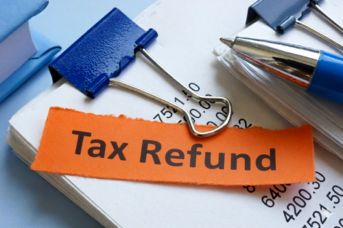Table of Contents
- Basic Structure of Japan’s New Tax Refund System and Key Revisions
- Timeline and Transition Schedule of Japan’s New Tax Refund System
- Customer Flow and Detailed Procedure
- Airport Procedures and Facilities
- Eligibility and Conditions for Japan’s New Tax Refund
- Changes in Eligible Products and Restrictions under Japan’s New Tax Refund System
- Conclusion
Did you know that Japan’s consumption tax refund system will undergo a major overhaul from November 1, 2026? Japan’s new tax refund system will significantly affect the shopping experience of foreign visitors and Japanese residents abroad. The system will fully shift from instant tax exemption at purchase to a method where goods are bought at tax-inclusive prices and tax is refunded at departure. Restrictions such as sealed packaging for consumables, the ¥500,000 daily purchase limit, and product category separation will be abolished under Japan’s new tax refund system. However, proof of departure within 90 days will become mandatory for Japan’s new tax refund system. For Kansai International Airport shoppers, fully understanding Japan’s new tax refund system is essential.
*This content is based on laws and regulations as of September 21, 2025. Future amendments or new regulations may change details.
Basic Structure of Japan’s New Tax Refund System and Key Revisions
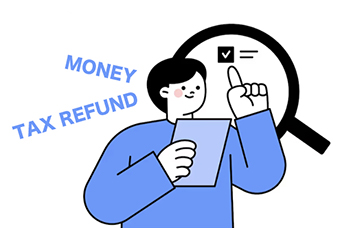
Japan’s tax refund scheme is operated as a “Tax-Free” system available to foreign visitors and Japanese residents living overseas. Unlike “Duty-Free” inside restricted airport areas, it exempts only consumption tax and is available at participating city shops and in non-restricted airport areas.
| Category | City Tax-Free Shops | Airport Duty-Free Shops (Restricted Area) |
|---|---|---|
| Taxes Covered | Consumption Tax | Consumption Tax, Liquor Tax, Tobacco Tax, Customs Duty |
| System Change | Affected | Unaffected |
| Purchase Method | Pay tax-inclusive first; receive a consumption tax refund at departure after procedures | Purchase at tax-free prices as before |
| Main Changes | ・Switch to refund-after-purchase method ・Sealed packaging for consumables no longer required ・Abolition of the ¥500,000/day purchase cap ・Abolition of the separation between general goods and consumables |
No change |
Fundamental Differences Between Current and Japan’s New Tax Refund System
From November 1, 2026, the accounting method for the tax-free system will fundamentally change. Under the current system, tax-free sales at tax-exclusive prices provide instant exemption at purchase. Under Japan’s new tax refund system, purchases are made at tax-inclusive prices and a refund is issued after departure is confirmed. This means customers pay the amount including consumption tax first and receive the refund equivalent after completing departure procedures under Japan’s new tax refund system.
There is no overlap period in Japan’s new tax refund system and full transition is scheduled for November 1, 2026. If you intend to use the current system, you must complete your purchase by October 31, 2026.
Improved Convenience Through Simplification
Japan’s new tax refund system greatly simplifies previously complex rules. For example, under Japan’s new tax refund system, the sealed packaging requirement for consumables is abolished, so cosmetics, medicines, and food items can be carried in ordinary bags. The daily purchase cap of ¥500,000 is also abolished, allowing more flexibility for high-value purchases.
The separation between general goods and consumables is also abolished, unifying tax-free procedures regardless of product type. This makes Japan’s new tax refund system easier for users to understand and is expected to simplify explanations by store staff.
Stronger Oversight for High-Value Purchases
Under Japan’s new tax refund system, purchases of ¥1,000,000 (before tax) or more, special handling will be introduced. At purchase, detailed information such as the product’s manufacturing or serial number must be submitted to the tax-free sales management system. This strengthens proper tax-free handling and customs verification for high-value goods.
Timeline and Transition Schedule of Japan’s New Tax Refund System
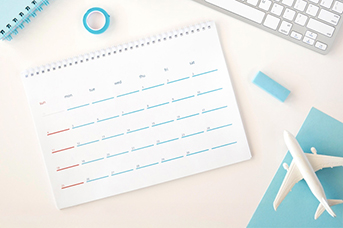
Japan’s new tax refund system will be implemented in stages, with April 1, 2025 and November 1, 2026 as key milestones. Preparations should be made in time for these changes.
Key Changes of Japan’s New Tax Refund System on April 1, 2025
From April 1, 2025, the “separate shipment tax exemption” was completely abolished.. Under Japan’s new tax refund system, exemption via overseas shipping of goods is no longer possible, and tax-free eligibility is limited to goods carried as personal baggage. If you wish to ship overseas, purchases will be at regular, tax-included prices.
As a result, when purchasing large or heavy items tax-free, under Japan’s new tax refund system, you must bring them as hand luggage or checked baggage.
Full Transition on November 1, 2026
From November 1, 2026, Japan’s new tax refund system will transition to a refund method. All tax-free purchases on or after this date fall under Japan’s new tax refund system, and instant exemption at purchase will no longer be available. To avoid confusion during the transition, advance information and preparation are essential.
AfterJapan’s new tax refund system starts, departure within 90 days of purchase and completion of confirmation procedures at the airport will be mandatory. If you exceed this period, the tax-free status becomes invalid and you will not receive a refund.
Points to Note During the Transition Period
Procedures at departure will differ for goods purchased under the current system by October 31, 2026 and for goods purchased under Japan’s new tax refund system on or after November 1. If you visit Japan multiple times, you must follow the proper procedures according to each purchase date.
Customer Flow and Detailed Procedure
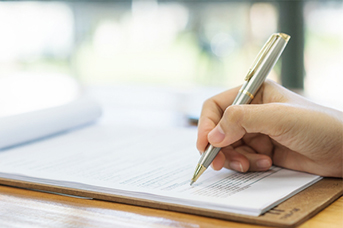
Under Japan’s new tax refund system, tax-free procedures are managed as a series of steps from purchase to departure. To ensure a clear and smooth experience, each stage is explained below.
In-Store Purchase Procedures
Under Japan’s new tax refund system, presenting your passport at purchase is mandatory. Store staff will verify your passport details and register the purchase record in the tax-free sales management system. At this point, you pay the product price including consumption tax.
The purchase record is automatically transmitted to the customs system and is used for confirmation at departure. While the rollout of self-service refund systems is under consideration, the specific flow (purchase proof, product presentation method, customs inspection timing, etc.) may differ by airport. Please watch for official announcements from each airport.
Browse Products | 【Official】KIX DUTY FREE Shop of Kansai International AirportExit Confirmation Within 90 Days
You must depart Japan within 90 days of purchase and complete passport scanning and confirmation at the airport. The exact flow and locations may differ by airport, and details, including any self-service refund systems, will be announced in due course.
Once the confirmation procedure is successfully completed, the tax-free status is finalized and the refund process for the consumption tax amount begins. Refund methods vary by store or entrusted operator and may include refunds to your credit card, bank transfer, or cash pickup at a counter.
Refund Processing Period and Methods
Refund processing under Japan’s new tax refund system requires some time after tax-free status is finalized. Credit card refunds typically appear on your statement in about 1–2 weeks. Bank transfers vary by destination bank and country, but generally take about 2–4 weeks.
| Process Stage | Required Action | Estimated Time |
|---|---|---|
| In-store purchase | Passport presentation & record entry | 3–5 minutes |
| Exit confirmation | Passport scan & record verification | 1–2 minutes |
| Refund processing | Refund after exemption confirmation | 1–4 weeks |
Airport Procedures and Facilities
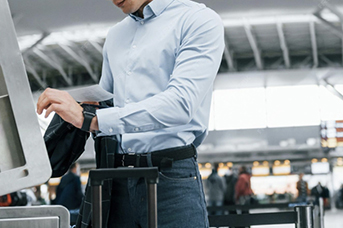
Under Japan’s new tax refund system, customs at your departure airport will verify your passport information and purchase records, and you may be asked to present purchased items. After this procedure, the tax-free status is finally confirmed.
Automation of Tax Refund Procedures
For efficiency, the introduction of self-service refund systems is being considered in some locations. However, it has not yet been decided whether this will be deployed uniformly nationwide.
Because the specific flow, whether inspections occur, the locations, and the exact methods may differ greatly by airport, you should watch for official announcements from the government and each airport. Multilingual-capable terminals are expected, but this is also unconfirmed at present.
Difference Between Duty-Free and Tax-Free
To understand Japan’s new tax refund system from November 2026, it is important to distinguish between Duty-Free and Tax-Free shops in airports. Duty-Free shops in restricted areas (after passport control) sell products at prices exempt from not only consumption tax but also customs duty, liquor tax, and tobacco tax. These are independent of the new system, so instant exemption at tax-exclusive prices will continue. Therefore, there is no need to complete a tax refund at the airport, which is a major convenience.
By contrast, shops in non-restricted areas (before departure inspection) fall under Japan’s new tax refund system and exempt only consumption tax. To avoid confusion, each area will clearly display which system applies, and staff will provide clear explanations.
Eligibility and Conditions for Japan’s New Tax Refund

The Japan tax-free system is limited to people defined as non-residents. This basic eligibility requirement does not change under Japan’s new tax refund system, and simplified procedures are expected to make it easier to use.
Definition and Proof of Non-Residents
Non-residents eligible for Japan’s new tax refund system include foreigners within six months of entry and Japanese citizens residing overseas. For foreigners, the entry stamp in the passport is used to verify the period of stay. Short-stay and sightseeing entries are typical cases.
For Japanese citizens residing overseas, additional documents such as a residence certificate are planned to become unnecessary under Japan’s new tax refund system. Verification with the passport alone will enable tax-free procedures, simplifying the process. However, confirmation of overseas residence periods through immigration records will continue.
Use with Cruise Ship Landing Permits
Visitors arriving by cruise ship can also use Japan’s new tax refund system with a cruise landing permit. Departure confirmation within 90 days is required in this case as well, and coordination with port authorities will be strengthened to ensure proper handling at departure by ship.
Exclusion of Long-Term Residents
Foreigners staying in Japan for long periods and those with a resident record (jūminhyō) are not eligible for Japan’s new tax refund system. Those holding residence cards or staying long-term for work or study do not meet the definition of non-resident and should be careful.
If your stay exceeds six months or you have resident registration, you cannot use Japan’s new tax refund system. A system that automatically checks these conditions at purchase via passport verification is planned.
Changes in Eligible Products and Restrictions under Japan’s New Tax Refund System

Japan’s new tax refund system abolishes complex product classifications, making a wider range of items eligible. Removing the separation between consumables and general goods is a major feature that makes the system easier to understand.
Browse Products | 【Official】KIX DUTY FREE Shop of Kansai International AirportAbolition of Consumable Classification and Its Impact
Under the current system, cosmetics, medicines, food, beverages, and tobacco are classified as consumables and are subject to special packaging and purchase limits. Under Japan’s new tax refund system, these items will be handled like general goods and can be carried in ordinary bags.
The effective scope of tax exemption for medicines and cosmetics expands, and purchase limits are relaxed. In particular, KIX duty-free shops carry a strong lineup of popular Japan-made cosmetics and medicines, which you will be able to purchase more freely.
View ROYCE | 【Official】KIX DUTY FREE Shop of Kansai International Airport (KIX)View Shiseido | 【Official】KIX DUTY FREE Shop of Kansai International Airport (KIX)
View SK-II | 【Official】KIX DUTY FREE Shop of Kansai International Airport (KIX)
View Suntory Whisky | 【Official】KIX DUTY FREE Shop of Kansai International Airport (KIX)
View SevenStars | 【Official】KIX DUTY FREE Shop of Kansai International Airport (KIX)
View IQOS | 【Official】KIX DUTY FREE Shop of Kansai International Airport (KIX)
Relaxation of Restrictions on High-Value Purchases
With the removal of the ¥500,000/day cap in Japan’s new tax refund system, high-value goods such as luxury watches, jewelry, and electronics can be purchased tax-free without restriction. However, items priced at ¥1,000,000 or more require detailed registration such as serial numbers.
Abolishing purchase caps in Japan’s new tax refund system significantly expands opportunities to buy luxury and limited items. At Kansai International Airport duty-free shops, specialized support systems will be in place to ensure proper tax-free procedures for these high-value items.
| Product Category | Current System | Japan’s new tax refund system (from Nov 2026) |
|---|---|---|
| Cosmetics & Medicines | Special packaging required; purchase limits apply | Normal packaging; limits abolished |
| Food & Beverages | Sealed packaging; ¥5,000–¥500,000 purchase range | Normal packaging; no price cap |
| General Goods | Over ¥5,000; no packaging | No price limit; no packaging |
Conclusion
Japan’s new tax refund system will be fully implemented from November 1, 2026, bringing a fundamental shift from instant exemption to a refund-based method. While convenience improves through the abolition of sealed packaging and purchase caps, departure confirmation within 90 days becomes a mandatory condition.
The April 1, 2025 abolition of the separate shipment system is also an important change towards Japan’s new tax refund system, so if you want overseas delivery, plan early. With the introduction of electronic application systems, tax-free procedures are expected to become more efficient and transparent.
References:
https://www.mof.go.jp/tax_policy/tax_reform/outline/fy2025/07taikou_04.htm
https://www.nta.go.jp/publication/pamph/shohi/menzei/201805/pdf/0025003-110_01.pdf
https://www.mlit.go.jp/kankocho/tax-free/page01_000001_00006.html
https://www.mlit.go.jp/kankocho/content/001858413.pdf
